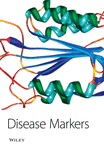Potential Serological Biomarkers of Cerebral Malaria
Abstract
Biomarkers have been used to diagnose and prognosticate the progress and outcome of many chronic diseases such as neoplastic and non communicable diseases. However, only recently did the field of malaria research move in the direction of actively identifying biomarkers that can accurately discriminate the severe forms of malaria. Malaria continues to be a deadly disease, killing close to a million people (mostly children) every year. One life-threatening complication of malaria is cerebral malaria (CM). Studies carried out in Africa have demonstrated that even with the best treatment, as high as 15–30% of CM patients die and about 10–24% of CM survivors suffer short-or long-term neurological impairment. The transition from mild malaria to CM can be sudden and requires immediate intervention. Currently, there is no biological test available to confirm the diagnosis of CM and its complications. It is hoped that development of biomarkers to identify CM patients and potential risk for adverse outcomes would greatly enhance better intervention and clinical management to improve the outcomes. We review here what is currently known regarding biomarkers for CM outcomes.
A Pub Med literature search was performed using the following search terms: “malaria,” “cerebral malaria,” “biomarkers,” “mortality” and “neurological sequelae.” This search revealed a paucity of usable biomarkers for CM management. We propose three main areas in which researchers can attempt to identify CM biomarkers: 1) early biomarkers, 2) diagnostic biomarkers and 3) prognostic biomarkers.




